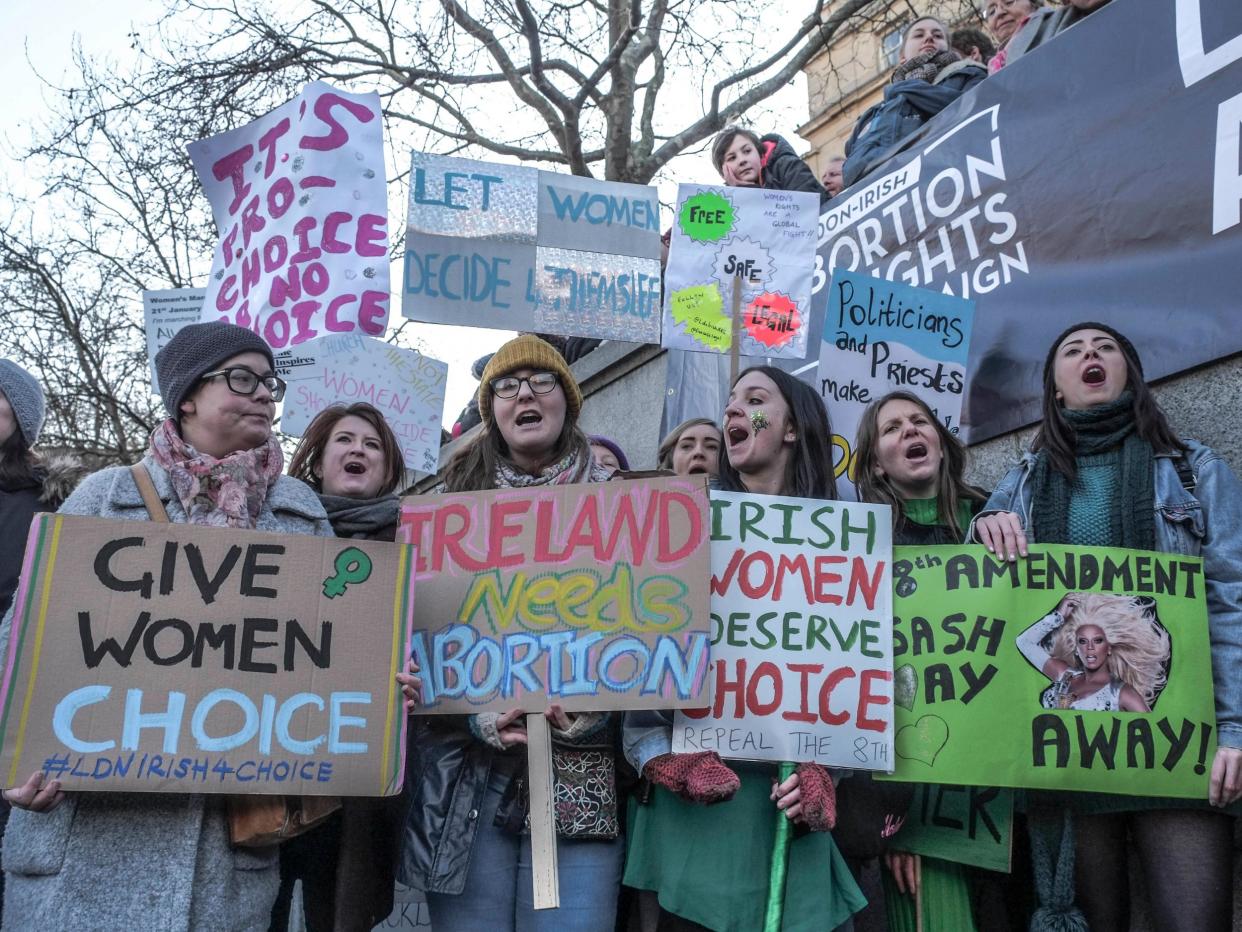I killed Savita Halappanavar by choosing to stay silent about my abortion – and I'm so sorry

I killed Savita Halappanavar.
Every time I see her image, the one with the broad smile, I am disturbed. I knew it back in 2012, when Savita died after being refused an abortion. Now with the repeal vote coming up – as her friends and her parents give us a full view of the woman, young and vital, living in Galway, as I once did – the full horror of the situation hits me again. I killed Savita.
The sickness from the pit of my stomach, the constriction of my throat and the tears come automatically. My head starts to pound, my toes go cold. The guilt. I’m sorry, I’m so very sorry.
Sorrier still that, in all these years, I never even tried to make it better.
You will say it wasn’t me, that it wasn’t my fault. Maybe you are right, in a technical kind of sense, but that´s not what it feels like. I killed her with my silence, and in that way I kill her still.
Are these tears for her or for me? Are these tears of grief or anger or frustration? Or all three?
I am the woman living on your street, or living in your house, or no longer living in Ireland. That woman. The one who never told anyone she had an abortion. That woman who is still so loathsomely cowardly nearly 20 years later that she doesn’t say a thing.
This referendum and that referendum come and go, and she still doesn’t say a thing. No hard case, you see. No extenuating circumstances. No rape, no incest, no fatal abnormalities, no cancer, no extreme poverty, no abusive relationship. Nothing that might make it easier for the family, or anyone else on that godforsaken island, to swallow.
Just an ill-advised risk taken with someone that should only ever have been a friend and not a lover. And I wasn’t interested in being a single mother. As it turned out, I wasn’t much interested in being a mother at all. I had a choice. I took it.
And for that half of my country condemn me to silence. To never knowing which friends would be supportive and which of them think: murderer. And why the whole country gets an opinion on a choice I made is beyond me. I get angry about the existence of a vote on the thing at all.
I get angrier still when I think back and remember that the hardest part about the whole damn thing was, and still is, the silence. The lies I had to tell to cover it up, the inability to speak.
And I want to kick it all down: the country, the patriarchy, all the women who aren’t sure what patriarchy means, the church, the legal nonsense of the term “unborn”, the SPUC posters back in the day, the lying on the posters now, the people who use the term “unborn” – as if they stayed like that and never became people who you have to look after and worry about for the rest of your life.
Then I think about Savita again and knowing that I killed her causes me more sadness than anything else. My silence has killed her just as certainly as the septicaemia did. Because I never did have the hard conversation with my mum or my aunts and uncles about my abortion. They continue to float on in blissful ignorance, thinking that abortion is something that happens to other people. Heartless people. Or that an Irish abortion in the UK means there is no abortion in Ireland. A mental escape hatch to the ugly reality that Ireland affords a choice to those who can afford it.
I was afraid of how they’d look at me and, because of that sort of thinking, Savita died. She died for all of us mired in silence. And she shouldn’t have. It was no heroic death; it was absolutely senseless. Just as senseless as if I’d bludgeoned her to death myself.
We didn’t speak out – we still don’t – and nothing changes. There’s no legal framework to help the medics. In case of emergency, break the woman, for the unborn is untouchable. And I am left with the guilt and shame of a good woman sent to her death because I couldn’t bear to make my relatives and friends uncomfortable. I am left with the disgust of what kind of person that makes me.
I can’t even outline the details of my story in case someone in my life might recognise it. In case it impacts my work life. Or disturbs my personal life. Coward that I am.
I’m so, so sorry – but still not sorry enough to come out of the shadows.
Savita, my darling, you were younger than I. I should have cleared the path. I didn´t. And you died. For all our sins.
Suzie Kerrigan is a pseudonym

 Yahoo News
Yahoo News 
